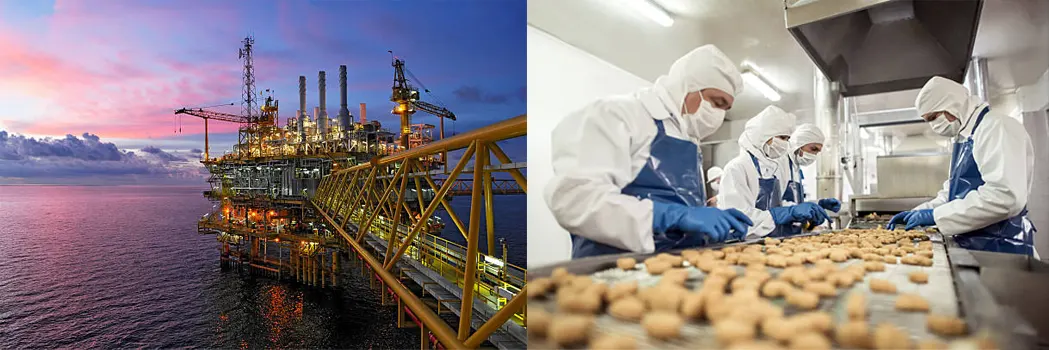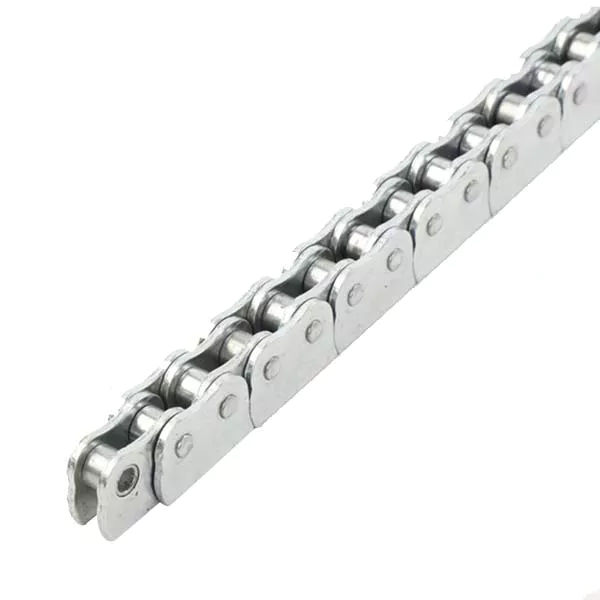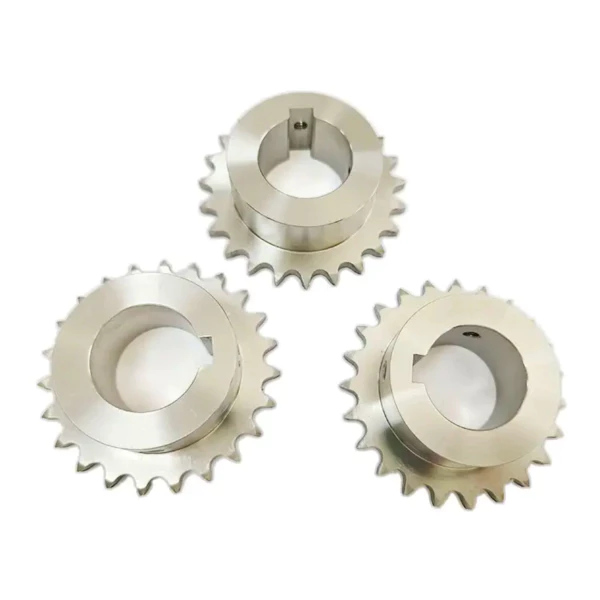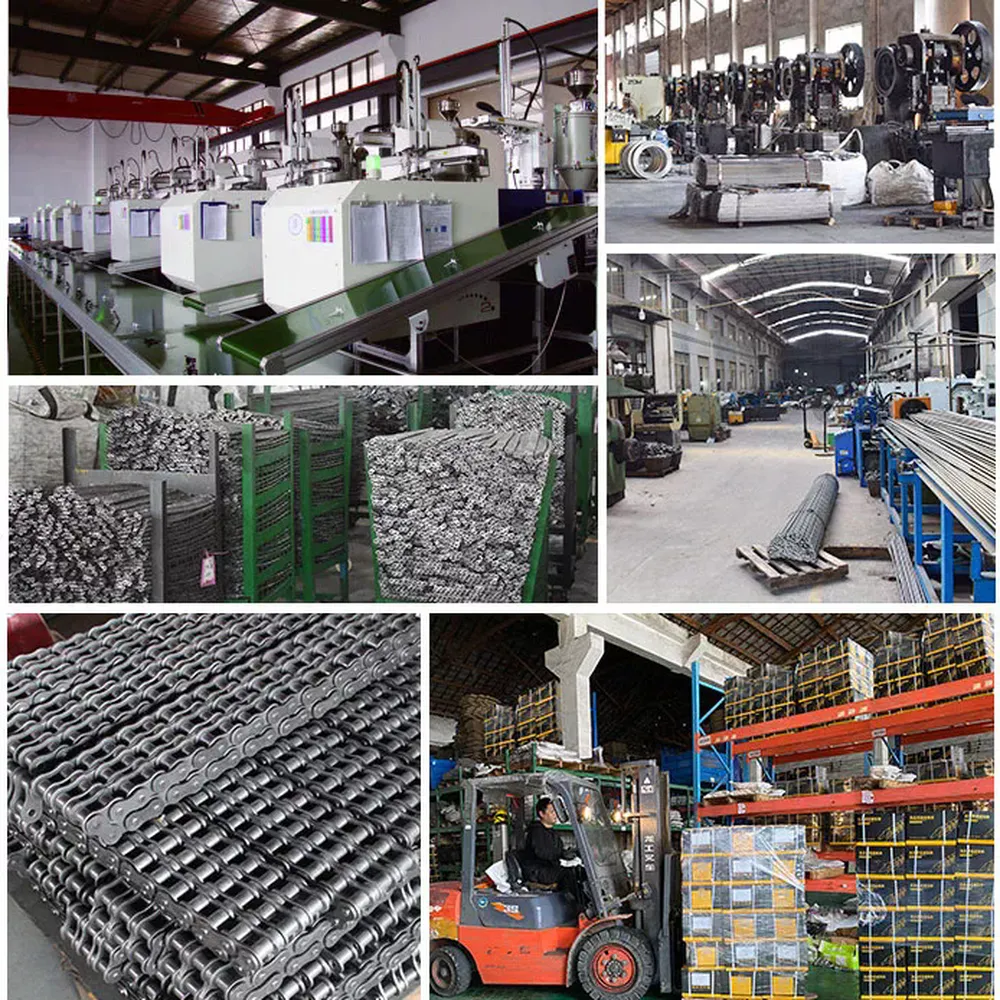Introduction
The use of stainless steel anti-bent chains in bridge construction plays a crucial role in ensuring the stability and longevity of the structure. These chains, specifically designed to withstand bending forces, offer enhanced durability and reliability in demanding construction environments.
Benefits of Stainless Steel Anti-Bent Chain
1. High Tensile Strength
Stainless steel anti-bent chains exhibit exceptional tensile strength, making them capable of withstanding heavy loads and extreme conditions. This property ensures the safety and integrity of the bridge structure.
2. Corrosion Resistance
Due to their composition, stainless steel anti-bent chains offer excellent resistance to corrosion, even in highly corrosive environments such as bridges exposed to saltwater or industrial pollutants. This corrosion resistance extends the lifespan of the chains and reduces maintenance costs.
3. Flexibility and Adaptability
Stainless steel anti-bent chains are flexible and adaptable, allowing for easy installation and adjustment to different bridge configurations. Their versatility makes them suitable for various bridge construction projects.
4. Enhanced Fatigue Resistance
These chains are designed to withstand cyclic loading and high fatigue stress, which are common in bridge construction. The enhanced fatigue resistance ensures the chains can endure repetitive bending forces without compromising their structural integrity.
5. Low Maintenance
Stainless steel anti-bent chains require minimal maintenance due to their durability and corrosion resistance. This reduces downtime and maintenance costs associated with frequent inspections and replacements.
6. Environmental Friendly
As stainless steel is a recyclable material, using stainless steel anti-bent chains promotes sustainability and reduces the environmental impact of bridge construction.
Why Choose Stainless Steel Anti-Bent Chain for Bridge Construction?
1. Superior Strength and Durability
The high tensile strength and enhanced fatigue resistance of stainless steel anti-bent chains make them ideal for withstanding the demanding loads and bending forces experienced in bridge construction. They ensure the structural stability and longevity of the bridge.
2. Corrosion Resistance in Harsh Environments
Bridge constructions often face challenging environmental conditions, such as exposure to saltwater or industrial pollutants. Stainless steel anti-bent chains offer excellent corrosion resistance, ensuring their performance and reliability in harsh environments.
3. Versatility for Different Bridge Configurations
With their flexibility and adaptability, stainless steel anti-bent chains can be easily customized and adjusted to suit various bridge configurations. This versatility allows for efficient and safe installation in diverse construction projects.
4. Lower Maintenance Costs
Using stainless steel anti-bent chains significantly reduces maintenance costs due to their durability and resistance to corrosion. The chains require minimal upkeep, saving both time and resources for ongoing bridge maintenance.
Common Fault Analysis and Solutions
1. Chain Wear and Elongation
In long-term bridge construction, chain wear and elongation may occur due to heavy loads and cyclic bending forces. Regular inspections and timely chain replacements are necessary to maintain the structural integrity of the bridge.
2. Corrosion and Rust
In corrosive environments, stainless steel anti-bent chains can still experience corrosion and rust if proper maintenance is neglected. Regular cleaning and applying protective coatings can prevent or slow down the corrosion process.
3. Fatigue Failure
Under repetitive bending forces, stainless steel anti-bent chains may experience fatigue failure. To mitigate this, proper chain selection based on load calculations and regular inspections to detect fatigue-related issues are essential.
Choosing and Customizing the Right Stainless Steel Anti-Bent Chain
When selecting or customizing a stainless steel anti-bent chain for bridge construction, several parameters and practical considerations need to be taken into account:
1. Load Capacity and Design Life
Assess the expected load capacity of the bridge and determine the design life required for the chain. This information will guide the selection of the appropriate stainless steel anti-bent chain with the necessary strength and durability.
2. Environmental Conditions
Consider the specific environmental conditions the chain will be exposed to, such as saltwater, extreme temperatures, or chemical exposure. Choose a chain that offers optimal corrosion resistance for the intended application.
3. Chain Size and Configuration
Determine the correct chain size and configuration based on the bridge design specifications and load requirements. The chain should be compatible with the sprockets or other components used in the bridge construction.
4. Installation and Maintenance Considerations
Evaluate the ease of installation and the maintenance requirements of the selected stainless steel anti-bent chain. Choose a chain that allows for convenient installation and offers low maintenance demands, reducing operation costs in the long run.
Stainless Steel Sprockets for Anti-Bent Chains
Stainless steel sprockets are essential components that complement the performance of anti-bent chains in bridge construction. These sprockets, made from high-quality stainless steel, provide reliable engagement and smooth operation with the chains.
Our company offers a wide range of stainless steel sprockets that are specifically designed to match the requirements of anti-bent chains. These sprockets ensure optimal efficiency and durability in bridge construction projects.
About Our Company and Recommended Stainless Steel Anti-Bent Chains
Edited by Zqq.
Our company is a reputable manufacturer specializing in the design, manufacturing, and sales of stainless steel chains. We provide a diverse range of products with materials such as stainless steel 304, 310, 321, 316, 410, 420, 431, 630, and 2205. Our chains are widely used in various industries, including food processing, pharmaceuticals, electronics, appliances, automotive manufacturing, machinery, metallurgy, and wastewater treatment.
We offer professional customization services based on customer requirements, ensuring our stainless steel anti-bent chains meet specific needs and applications. Our products have been exported to Europe, America, Southeast Asia, and other regions, gaining recognition for their quality and performance.
We encourage customers to explore our stainless steel anti-bent chains and contact us for purchasing inquiries.
Q&A
Q: Can stainless steel anti-bent chains be used in other applications besides bridge construction?
A: Yes, stainless steel anti-bent chains are also suitable for applications such as heavy machinery, offshore structures, conveyor systems, and mining equipment where resistance to bending forces and corrosion is required.
Q: Are there any specific maintenance requirements for stainless steel anti-bent chains?
A: Regular inspections for wear, corrosion, and elongation are recommended for stainless steel anti-bent chains. Cleaning and applying lubrication can help maintain their performance and prevent premature failure.
Q: Can the stainless steel anti-bent chain be repaired if it gets damaged?
A: Depending on the extent of the damage, minor repairs can be carried out by replacing damaged links or sections. However, in cases of severe damage, it is advisable to replace the entire chain to ensure safety and structural integrity.
Edited by Zqq.





